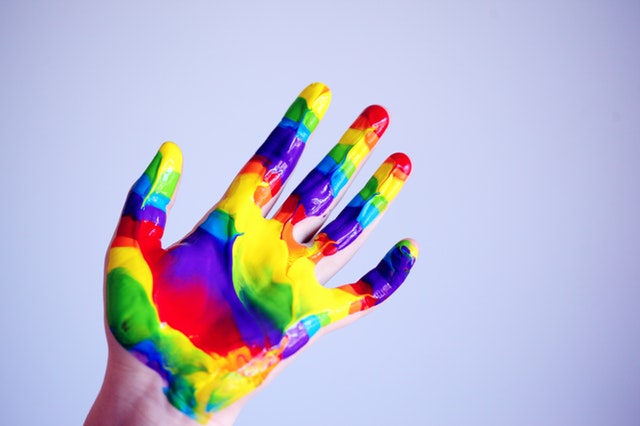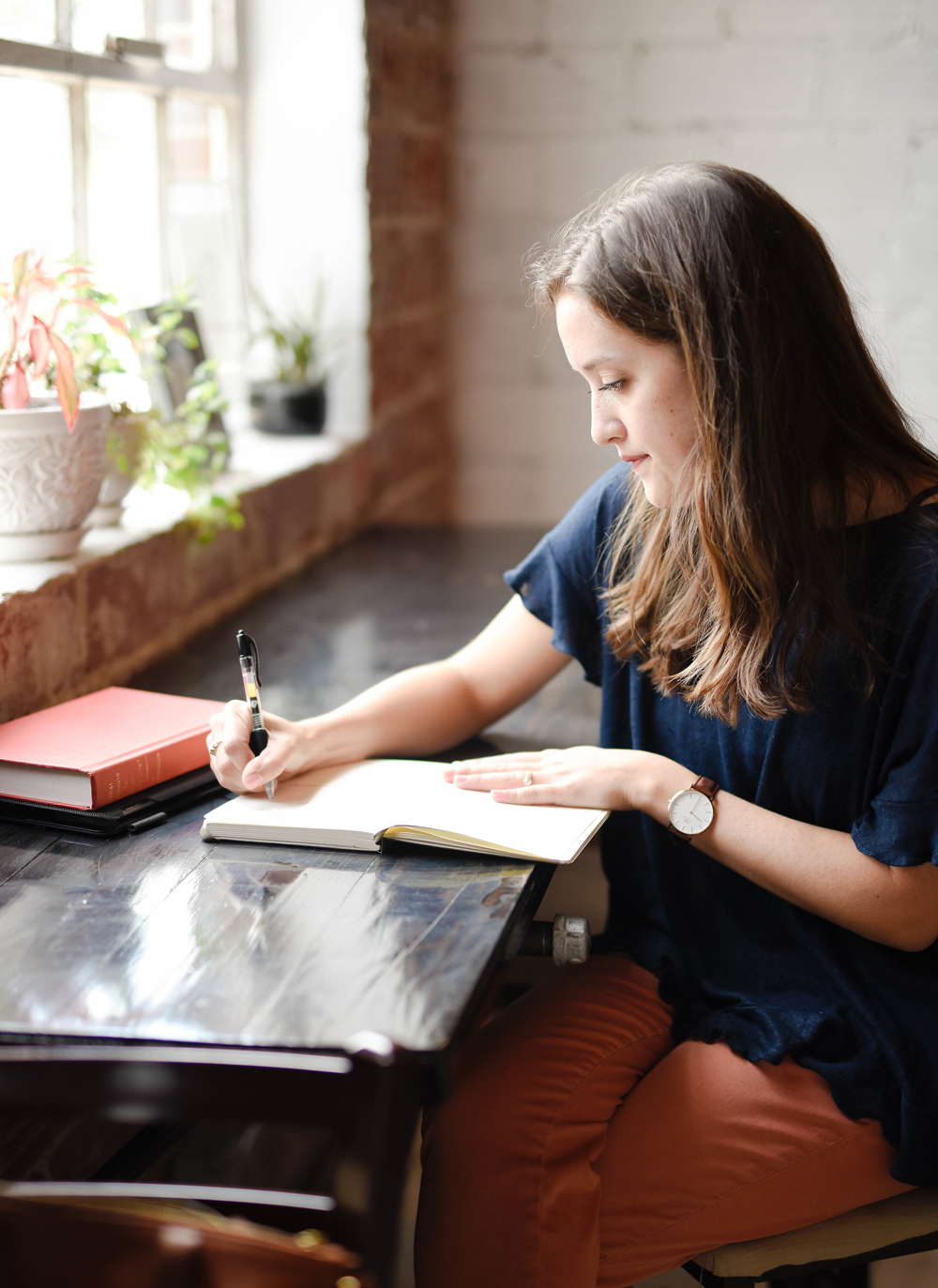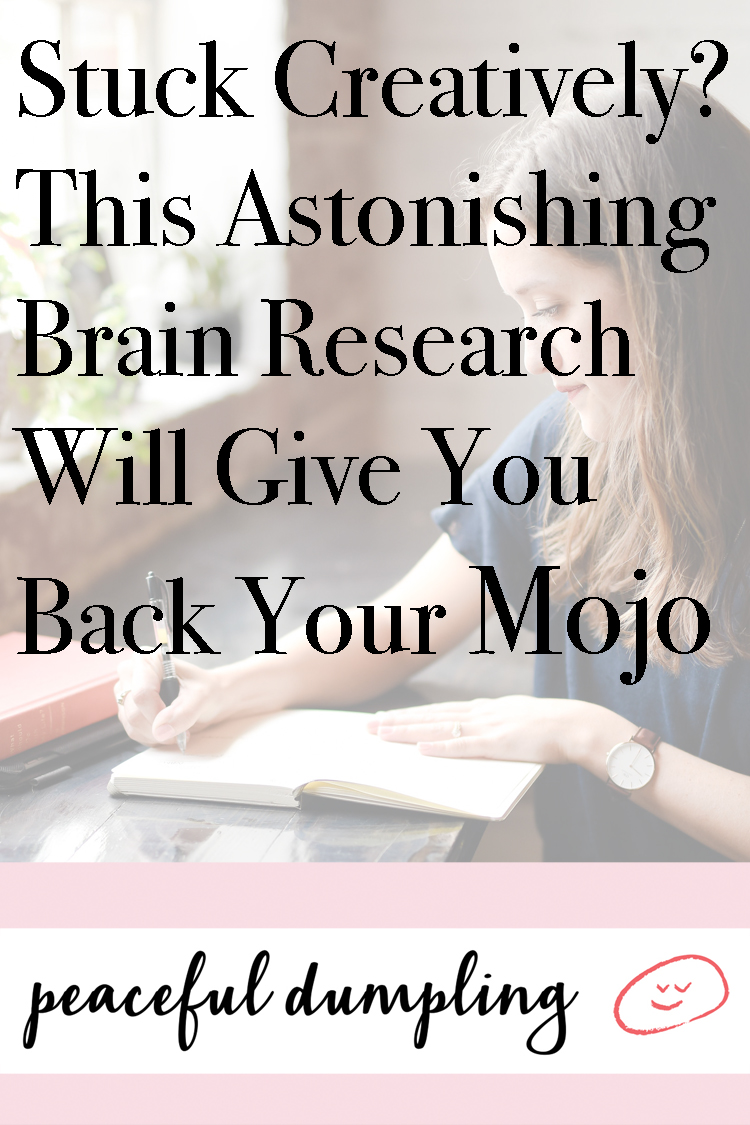
Think you’re not creative? Our DNA tells a different story.
“A creative life is an amplified life. It’s a bigger life, a happier life, and expanded life, and a hell of a lot more interesting life. Living in this manner—continuously and stubbornly bringing forth the jewels that are hidden within you—is a fine art, in and of itself.” So writes Elizabeth Gilbert in her bestseller Big Magic, a clarion call for people of every stripe to let go of the fears that are preventing them from living creatively—and cultivate this “big magic.”
This is all well and good, and as a read, the book is wholly inspiring, and yet there’s something slightly inaccessible about her approach; just like the soul-clarifying journey she took in Eat Pray Love ignited the ire of many, here the ability to expand and be more “interesting” can feel out of reach if you don’t call yourself an Artiste. Yes, she cites examples as far ranging as the renowned poet Jack Gilbert and her old friend who decided to pick up her childhood ice skating practice in middle age, but those people aren’t me, you may think. I’m not friends with a writer whose imagination is as diverse as the categories of books at Barnes and Noble. I have no jewels.

Such a train of thought is even more prominent among those who favor left-hemisphere activities, namely scientists and other mechanical or technical workers. Whether or not they derive pleasure from their work, it’s universally understood that careers like physicians, data scientists, researchers, engineers, and coders are drawn to those professions because of the precision they require. There are rules and protocols, and these people know how to follow. For them, the creativity that Gilbert describes might not only feel impossible but also scary. Amplification leaves room for error, and when you’re administering drugs or running a large company, there’s no space for that.
The very arena that ostensibly denies creativity, however, is doing a double-take as science dives into the ways we all are—and must, for the survival of the species—possess creativity of tapped or untapped potential. Narrative medicine is one such field, examining how storytelling, both oral and written, is proving a measurable effect on the health and well-being of sick individuals. A classic example of this is the placebo effect—what happens when a patient believes a nonactive drug, or placebo, in a study is effective and gets better despite their null treatment. What’s happening here is a fundamental act of storytelling—a person being so convinced that a reality she imagines is true that it actually comes true. While this could merely point to the power of our minds over our bodies, related studies show that the placebo effect is amplified when the ripple of storytelling widens: If a patient’s doctor also believes in the story, and they have a good relationship, then the placebo will work more often.
The importance of the doctor-patient relationship is underscored by a phenomenon called brain-to-brain coupling. In the foundational 2012 study by Uri Hasson et al., it was shown that a person listening to verbal communication, whether a shared common language or even a made-up one, will eventually have her brain waves sync up to a storyteller’s—and even be able to predict what the storyteller will say next. The act of storytelling not only fires up language centers, but all of the other brain regions that would allow the listener to physically experience what was happening in the story. We can see examples of this all around us—remember the last time you watched a gory scene on television, and how you likely reached for your own body parts to protect them from what was happening on the screen; more immediately, remember the last time you heard someone describe a painful or frightening experience and how you may have physically felt that same trauma.
In the medical field, however, the repercussions are vast. When doctors listen more fully and completely to their patients’ stories, that full-body understanding is more likely to arise, which could result in better treatment. If the doctor picks up everything the patient says about her condition, and even what she doesn’t say verbally, then the solution could be found more easily. More advanced technology isn’t needed for better care, though it could help. More advanced creativity is the key.

If a doctor is paying more attention to filling out charts and paperwork than creatively engaging with a patient, the results of their relationship could suffer.
This ability to use so much of our brains in the act of storytelling points to our fundamentally creative nature. We are wired to pick up on valuable information by listening and sharing our stories, whether we are weaving an intricate map of beautiful prose in a novel or memoir, or simply ordering a morning coffee. We find connection amongst ourselves—and make our experiences shared ones—by turning them into interesting narratives. As a result, our worlds do in fact get bigger as we begin to inhabit the mental and physical worlds of others. So the next time you find yourself complaining that your job doesn’t give you enough of a creative outlet, consider turning to your office mate and telling him or her about your troubling project or just about your day. When you let him or her into your headspace, together you’ll manifest more creative jewels than you thought were possible.

Does creativity feel natural to you? How do you ignite your creativity?
Also by Jennifer: How To Heal Trauma & Manifest Your Dreams With Narrative Medicine
Related: How To Reignite Your Creativity & Productivity After An Emotionally Trying Period
Stuck In A Rut? These 10 Creativity Quotes Will Help You Feel Motivated Again
Get more like this—Subscribe to our daily inspirational newsletter for exclusive content!
__
Photos: Pexels.com, Hannah Olinger on Unsplash




